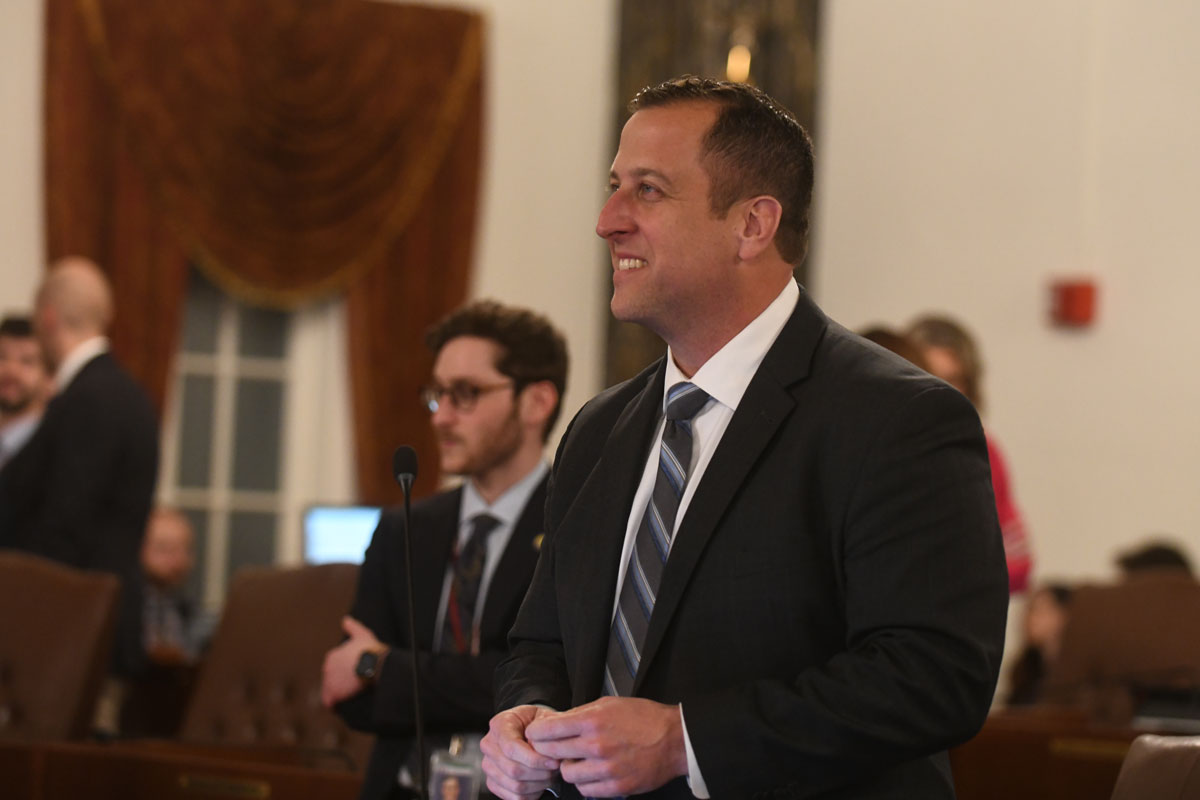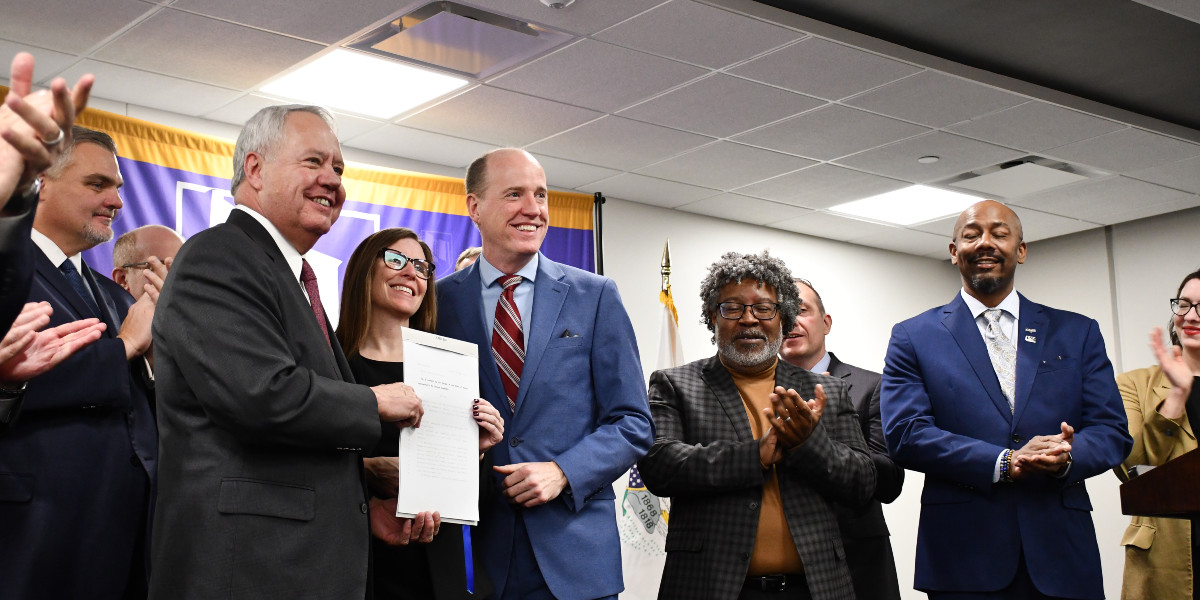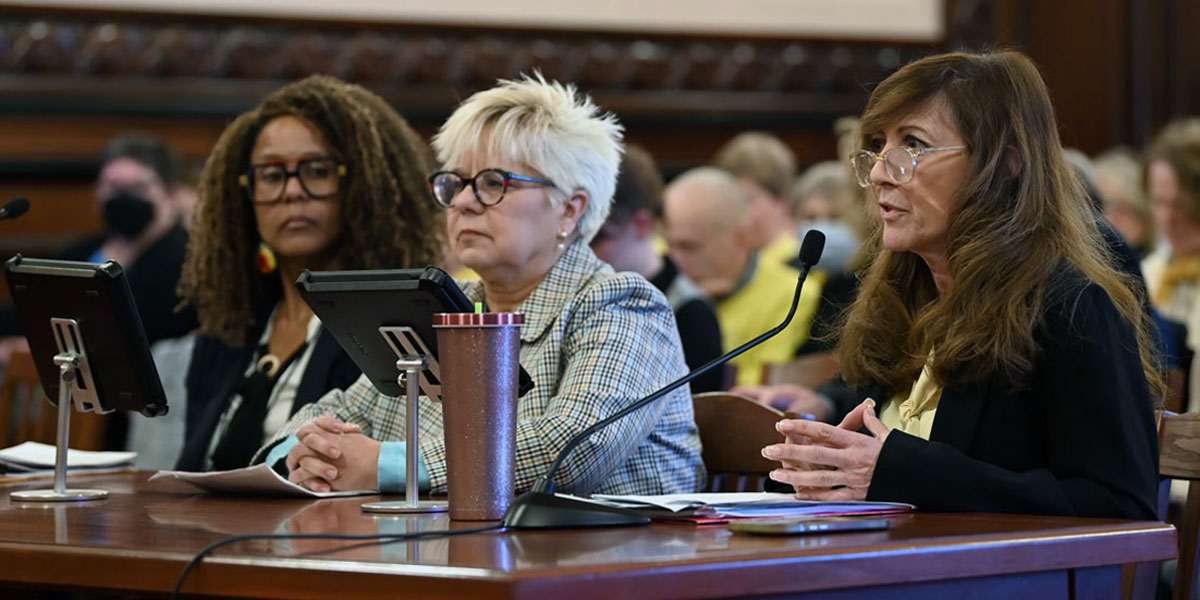Senator Holmes’ paint recycling program becomes law for Illinois
- Details
 SPRINGFIELD – Homeowners throughout Illinois have something in their basement or garage that should be discarded, but until now, there hasn’t been a means to get rid of it safely: unused household paint. Legislation sponsored by State Senator Linda Holmes that establishes a program to dispose of household paint was signed into law by the governor Friday.
SPRINGFIELD – Homeowners throughout Illinois have something in their basement or garage that should be discarded, but until now, there hasn’t been a means to get rid of it safely: unused household paint. Legislation sponsored by State Senator Linda Holmes that establishes a program to dispose of household paint was signed into law by the governor Friday.
The Paint Stewardship Act creates a process for consumers to dispose of household paint in Illinois. No state resources are in place today to deal with this waste. Under this law, manufacturers of architectural paint will create and submit a plan to the Illinois EPA to establish the program.
“It is exciting to offer this service to Illinoisans with old paint taking up space in their homes,” said Holmes (D-Aurora). “To get rid of it in an environmentally safe manner will give us an opportunity to make our state’s soil and water cleaner for our children and to safely produce our crops to feed the state and nation.”
Read more: Senator Holmes’ paint recycling program becomes law for Illinois
Glowiak Hilton law ensures families of fallen heroes receive accurate benefits
- Details
 SPRINGFIELD – A new law sponsored by State Senator Suzy Glowiak Hilton will help families of our fallen heroes in securing survivor benefits.
SPRINGFIELD – A new law sponsored by State Senator Suzy Glowiak Hilton will help families of our fallen heroes in securing survivor benefits.
“Our nation’s military families have made life-changing sacrifices to serve our communities,” said Glowiak Hilton (D-Western Springs). “This new law will create clarity to ensure the families of these fallen heroes will be given the financial support they are entitled to.”
House Bill 2856 will require vital records to list contributing factors behind a veteran’s death. This requirement would ensure survivor benefits and other rights are distributed if the death was caused by a service-related injury.
Read more: Glowiak Hilton law ensures families of fallen heroes receive accurate benefits
Hastings’ bipartisan measure to crack down on crime now law
- Details
 SPRINGFIELD – State Senator Michael E. Hastings’ measure to help police and sheriffs quickly track stolen vehicles is now law.
SPRINGFIELD – State Senator Michael E. Hastings’ measure to help police and sheriffs quickly track stolen vehicles is now law.
“This measure helps us evolve by better utilizing the latest technology to track criminal actions,” said Hastings (D-Frankfort). “We already know that there is technology readily available to track carjackers and kidnappers as they travel from Point A to Point B. It is essential that we empower law enforcement with these tools to successfully apprehend these criminals.”
Nationwide, carjackings are on the rise, but without formal coordination between authorities and vehicle manufacturers, law enforcement officers had little to no ability to access real-time tracking information.
Read more: Hastings’ bipartisan measure to crack down on crime now law
Castro announces $4 million for lead service line replacement in Carpentersville
- Details
 ELGIN – State Senator Cristina Castro announced that the Village of Carpentersville will receive $4 million in funding from the Illinois EPA to replace lead service lines in the community.
ELGIN – State Senator Cristina Castro announced that the Village of Carpentersville will receive $4 million in funding from the Illinois EPA to replace lead service lines in the community.
“Clean drinking water is a basic human right, and it’s especially important that our children have access to clean water that is lead-free,” said Castro (D-Elgin). “Investing in replacing these pipes will keep harmful chemicals out of our water and give Carpentersville families, schools and businesses peace of mind that their water infrastructure is safe, healthy and upgraded.”
Read more: Castro announces $4 million for lead service line replacement in Carpentersville
More Articles …
Page 266 of 735
























 © 2026 Illinois Senate Democratic Caucus
© 2026 Illinois Senate Democratic Caucus